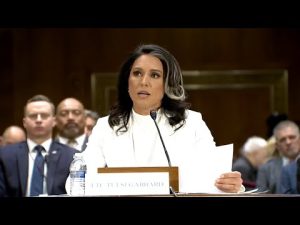### The Debate Over Faith and Culture: A Deep Dive into American Morality
In a recent discussion that captured the hearts and minds of many, the conversation turned towards the role of religion in American culture and morality. For some, these talks may seem like a relic of the past, but they are far from it. The crux of the argument delved into whether America’s Christian values should dictate societal norms or if we should simply rely on secular intuition as our moral compass.
One of the central points raised was the tension between faith and personal beliefs. Many argue that the very fabric of American society was stitched together with threads of religious integrity. For them, abandoning these principles leads to a slippery slope of chaos and confusion. Detractors might scoff at the dogmas — the dietary restrictions and ceremonial garments — suggesting they are out of touch with modern sensibilities. Yet, supporters point out that these rules were not just random choices; they were founded on deep, historical contexts meant to provide structure to a society that thrived on shared morals.
As the discussion unfolded, it became clear that while some see religion as a set of outdated rules, others view it as a necessary guide for ethical behavior. Take, for instance, the Ten Commandments, which are often cited as foundational principles for right and wrong. The conviction here is that without these, society might lose its way. There is a strong belief that abandoning these core values leads not just to moral ambivalence, but also to tangible societal issues, such as the troubling trends seen in issues like abortion and the increasingly controversial drag queen story hours.
Acknowledging that no one is perfect, the conversation also turned towards the idea of accountability. Many participants expressed concern that society is losing its grip on what is right and wrong, particularly when it comes to the impressionable youth. The notion that children are exposed to possibly harmful ideologies has sparked a fervor among those who wish to preserve a more traditional societal structure. They argue that children should be sheltered from adult subjects until they themselves can fully comprehend the complexities of those issues.
Furthermore, one participant passionately declared that many of the problems we face today stem from a disregard for moral convictions laid down in religious texts. This perspective emphasizes that even if one doesn’t align with a particular faith, the shared values derived from such beliefs contribute to a stable and respectful society. The thrust of this argument is that secular reasoning alone may not provide the same depth or solidity as that found in time-honored religious teachings.
In the end, the debate raised critical questions about the kind of society we want to foster. Will we continue to embrace a collective set of morals that remind us of our roots, or will we drift towards a subjective interpretation of right and wrong? The discussion stressed that while individual relationships with God may vary, the collective moral infrastructure could benefit from revisiting teachings that have stood the test of time. It demands more than just vocal lamentations about the state of the world; it requires action, introspection, and perhaps a renewed commitment to the values that once made this nation a beacon of hope and order.
Thus, as America continues to wrestle with its identity, the intersection of faith and moral clarity remains a vibrant and necessary conversation. With a nod to history’s wisdom, one can only hope that this dialogue inspires future generations to find their footing on foundational values that uphold the very essence of society. After all, a little reflection on bygone principles might just illuminate a path forward in this ever-evolving cultural landscape.



